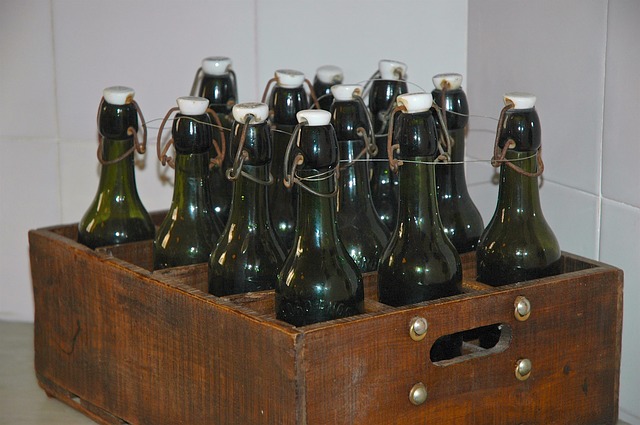I have been participating in a group that was reading Complexity: A Guided Tour, by Melanie Mitchell. Complexity can be found in many fields of science and we were mostly looking for parallels with economics. However, in the last chapters the focus was mainly on the field of genetics, and although very interesting, we ran dry of creative comparisons between complexity as presented by Mitchell and our own field of expertise, economics. And since we almost covered the whole book we felt we could set it aside for a moment and explore another kind of complexity: the supply chain.
For our exploration we used the beer game, which might be an interesting game to play with business economics students. You, as a teacher, can start a new game, give it a sensible name and then your students can join your existing game. Mind you, there are only four players in each game, so you might want to delegate the job of creating games to one student of each student team.
Now, the idea behind the game is that you keep the operating costs in the supply chain as low as possible. The original board game, on which the online game is based, is explained in the MIT Technology Review of October 2013. But this is not what got my attention.
I found the game interesting because it illustrates the concept of delay, which is also a concept in systems thinking. In the first round I played the role of the wholesaler and the delivery time of the orders I placed with the distributor was two weeks. Now, if you, as a wholesaler, receive a regular flow of same sized orders from retailers, it is easy to plan ahead, taking the delay into consideration. It becomes a lot harder, however, when you have to deal with erratic retailer behaviour as I had – we were all trying to get the gist of the game.
Delays can best be described as interruptions in a closed system between some cause and effect. In other words, when time passes between an action and the resulting feedback, this is a delay. I have illustrated this, applied to my wholesale experience, in the causal loop diagram below:
In the diagram, I focused on the deliveries from the beer producer. You can see that if the stock level goes down, the number of products ordered by the wholesaler increases. This causes, with a delay, the products delivered by the producer to increase too, which in turn causes the products in stock to increase.
The alarm illustrates the delay between placing the order and receiving the delivery. By playing the beer game, students can be made aware of the concept of delay. Understanding this concept adds to the toolkit of a systems thinker, since delays are one of the building blocks of systems. It is often explained with the workings of a thermostat: when you turn up the heat, it will take some time for the temperature in the room to adjust.
The concept of delays is important when we want to intervene in the system to improve its outcome. We call places to intervene in the system, leverage points Delays in themselves can be potential leverage points, like speeding up paperwork. However, when the delay is not within our control, or it cannot be changed, like the time it takes to heat a room, our interventions may cause the system to oscillate.
I have experienced that myself, when I was a wholesaler in the beer game. I was trying to adjust my order size to the number of products in stock and the size of the retail orders, constantly overshooting or undershooting my target. I did not only have to deal with a delivery delay, but also with a perception delay: my perception of what was happening in the market. In her book Thinking in Systems, a Primer, Donella Meadows also mentions a response delay, which I cannot remember.
When we started the game and were dividing the roles it struck me as odd that the farmer growing barley was not included. The growing of barley introduces another delay: the time from sowing barley, a main ingredient of beer, to reaping it. This delay is much longer than the delivery delay, and it is known to economists as the pork cycle. A system cannot respond to short term changes, when it has long term delays.
I remember reading an article about the impact of climate change on beer production. I read it in Dutch, but I found a similar article in English. Dabo Guan, a climate-change economist at the University of East Anglia in Norwich, UK, and his colleagues combined a series of climate and economic models to predict how extreme weather produced by climate change is likely to affect barley crops — and how this in turn will influence beer supply and pricing. This introduces another example of a delay: the time it takes the price to adjust to a supply-demand imbalance.
I wondered how that would have played out in the beer game.
henny@21steconomics.org – You can also find me on LinkedIn
Image by Mark stanley from Pixabay




